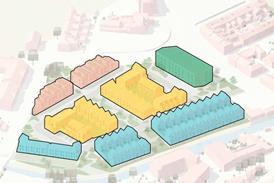After a summer like no other you are probably in need of an autumn reset, suggests Louise Rodgers

To everything there is a season. We associate summer with warmer weather, longer days, holidays, and perhaps a more relaxed work routine. As we settle into autumn, we may be a little sad that summer has passed, but the transformative energy of autumn often kick starts a new period of productivity.
And if this was a podcast, there would be a scratched record sound about now.
There is no need to tell you that this summer has been a summer like no other. As a result, most of us are not feeling refreshed and reinvigorated and ready for the short, dark and probably cold wet days ahead (sorry), but rather a little jaded, low and exhausted.
For that reason, and to shore up our resilience for the months ahead, it may be necessary to reset more than the clocks to help us get into a better mental, and perhaps physical, state for what the coming months may bring.
Remember March, when the focus was on establishing a healthy working-from-home routine? My coaching partner Rachel Birchmore and I spent a lot of time back then talking to individuals and teams around this topic.
We often asked them to make two lists – one of all the things they couldn’t control (such as the progress of the pandemic), and one of the things they could. It is a simple exercise but can encourage us to focus on establishing healthier routines around such things as diet, exercise and maintaining the boundaries between “work” and “home”.
As the months have gone by, these new habits may either have become harder to stick to or may even slipped completely by the wayside.
On top of that, several months after that first lockdown, the novelty of Zoom and Microsoft Teams as a way of keeping in touch with colleagues and enabling work to carry on more-or-less as usual, has definitely worn off.
These days people are more likely to be experiencing signs of technostress; feeling compulsive about staying connected, sharing constant updates, pressurised to respond to work-related information in real-time and almost habitually multi-tasking.
Many are also “in” back-to-back meetings all day and have apparently forgotten that responding to an email almost as soon as it arrives regardless of the time of day is not a sign of productivity, but of damaging presenteeism.
If that sounds familiar, then try making a list at the beginning of the week of your five priorities for that coming week. Then look at the meetings you are due to attend.
How many of those meetings relate to these five priorities? Are there meetings in your diary that you really don’t need to be at? What is the worst thing that could happen if you aren’t there? Can you send comments in beforehand, or delegate it to someone in your team who may see it as an opportunity for their own professional growth?
Also, try an occasional home tech retreat. Take a day without any devices to do things you enjoy; walk, cycle, read, play or create instead. Anything that helps you reconnect with your physical self in contrast with screen-time, which is so much about being in your head.
Taking back control of your time in this way may also give you the option of creating more time for focused work, and perhaps for a brisk lunchtime walk or occasional early finish.
Neither of these things is a sign that you are “slacking” but rather that you are taking sensible precautions to safeguard your physical and mental health.
We have a good few months of this remote or hybrid way of working before we are out the other side of the pandemic crisis, and what got us here may not necessarily get us there. So, let’s all get back to controlling the controllables and focus on making some small changes to help us on our way.
















1 Readers' comment